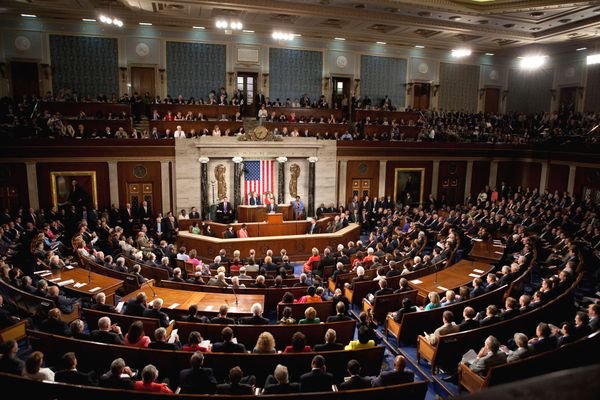In recent weeks, the U.S. Congress has been embroiled in intense legislative battles over several key bills, each facing significant pushback from various factions.
One of the most contentious pieces of legislation is the “One Big Beautiful Bill Act,” a comprehensive budget reconciliation bill introduced by House Republicans. This bill seeks to extend major provisions of the 2017 Tax Cuts and Jobs Act, reduce non-military government spending, and implement stricter eligibility requirements for programs like Medicaid and the Supplemental Nutrition Assistance Program (SNAP). Additionally, it proposes a 10-year moratorium on state-level artificial intelligence regulations and allocates an extra $150 billion for defense spending. The Congressional Budget Office estimates that the bill could add several trillion dollars to the national debt. The House narrowly passed the bill on May 22, 2025, with a vote of 215–214–1, primarily along party lines. However, the legislation faces significant hurdles in the Senate, where fiscal conservatives are advocating for deeper spending cuts, and moderates express concerns over provisions affecting healthcare and energy policies. Democrats are also expected to challenge certain aspects of the bill using the Byrd Rule, which restricts the inclusion of extraneous measures in reconciliation bills.
Another major legislative effort is the National Defense Authorization Act (NDAA) for Fiscal Year 2025. The House passed the $895 billion defense spending bill on June 14, 2025, with a vote of 217–199. The bill includes several socially conservative amendments, such as blocking funding for gender-affirming care for transgender military members and defunding military diversity, equity, and inclusion programs. These provisions have drawn criticism from Democrats, who argue that the amendments are divisive and unrelated to national defense. The Senate is expected to engage in further negotiations to reconcile these differences, with the potential for additional amendments and compromises.
In the realm of trade policy, the Trade Review Act of 2025 has been introduced to reassert Congressional authority over trade decisions, particularly the imposition of tariffs. The bill requires the President to notify Congress of any new tariffs, provide economic justifications, and obtain Congressional approval for those tariffs to remain in effect beyond 60 days. This bipartisan effort aims to counter the executive branch’s growing use of unilateral trade actions. However, the legislation faces strong opposition from the White House, including a veto threat from President Donald Trump.
These legislative battles underscore the deep divisions within Congress and the challenges of balancing partisan priorities with the complexities of governance. As these bills progress through the legislative process, further negotiations and potential amendments are anticipated, reflecting the dynamic and contentious nature of U.S. politics.












I dont get why theyre pushing back on these bills. Dont they see the potential benefits? Seems like a missed opportunity.
Do you think these heated congressional sessions are necessary for democracy to thrive, or are they just causing unnecessary drama? Lets discuss!
Why cant they just work together for once? All this pushback is just causing unnecessary drama. Cant they see the bigger picture?
I cant believe the pushback on those key bills! Its like a never-ending rollercoaster in Congress. Whats your take on all this drama?
Do we really need all these heated debates in Congress? Cant they just work together for once? #TeamCollaboration
I cant believe the drama in Congress! Its like a reality show, but with higher stakes. Who knew legislative battles could be so intense?